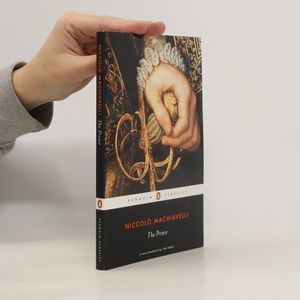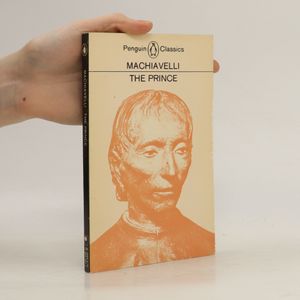Das Buch ist derzeit nicht auf Lager

Parameter
- 156 Seiten
- 6 Lesestunden
Mehr zum Buch
Focusing on the challenges faced by a new ruler, Machiavelli outlines strategies for maintaining power in "The Prince." He contrasts the easier path of hereditary princes with the complexities of new leadership, emphasizing the need for public virtue while potentially engaging in morally questionable actions for the greater good. Unlike other political treatises, it avoids idealism, instead providing practical examples from Machiavelli's diplomatic experiences and ancient history. The text reflects Renaissance influences through its use of Latin and classical references.
Publikation
- 2024

- 2024

- 2023

- 2023

- 2023

- 2023

- 2023

- 2023

- 2023

- 2022

- 2022

- 2022

- 2022

- 2022

- 2022

- 2022

- 2022

- 2022

- 2022

- 2021

- 2021

- 2021

- 2021

- 2021

- 2021

- 2021


- 2020

- 2020

- 2020

- 2020

- 2020

- 2020

- 2020

- 2020

- 2020

- 2020

- 2020

- 2020

- 2020

- 2020

- 2020

- 2020


- 2019

- 2019

- 2019

- 2019

- 2018

- 2018

- 2018

- 2018

- 2018

- 2018

- 2018

- 2018

- 2018



- 2017

- 2017

- 2017

- 2017

- 2017

- 2016

- 2016

- 2016


- 2015

- 2015

- 2015

- 2015

- 2014




- 2012

- 2012

- 2012

- 2012

- 2012



- 2011

- 2011

- 2011

- 2011

- 2011

- 2011

- 2010




- 2009

- 2009

- 2009



- 2008

- 2008


- 2008

- 2006


- 2005

- 2005





- 1998



- 1995


- 1992


- 1986

- 1984










Buchkauf
The Prince, Niccolò Machiavelli
- Sprache
- Erscheinungsdatum
- 2009
Wir benachrichtigen dich per E-Mail.
Lieferung
- Gratis Versand ab 9,99 € in ganz Deutschland!
Zahlungsmethoden
Hier könnte deine Bewertung stehen.